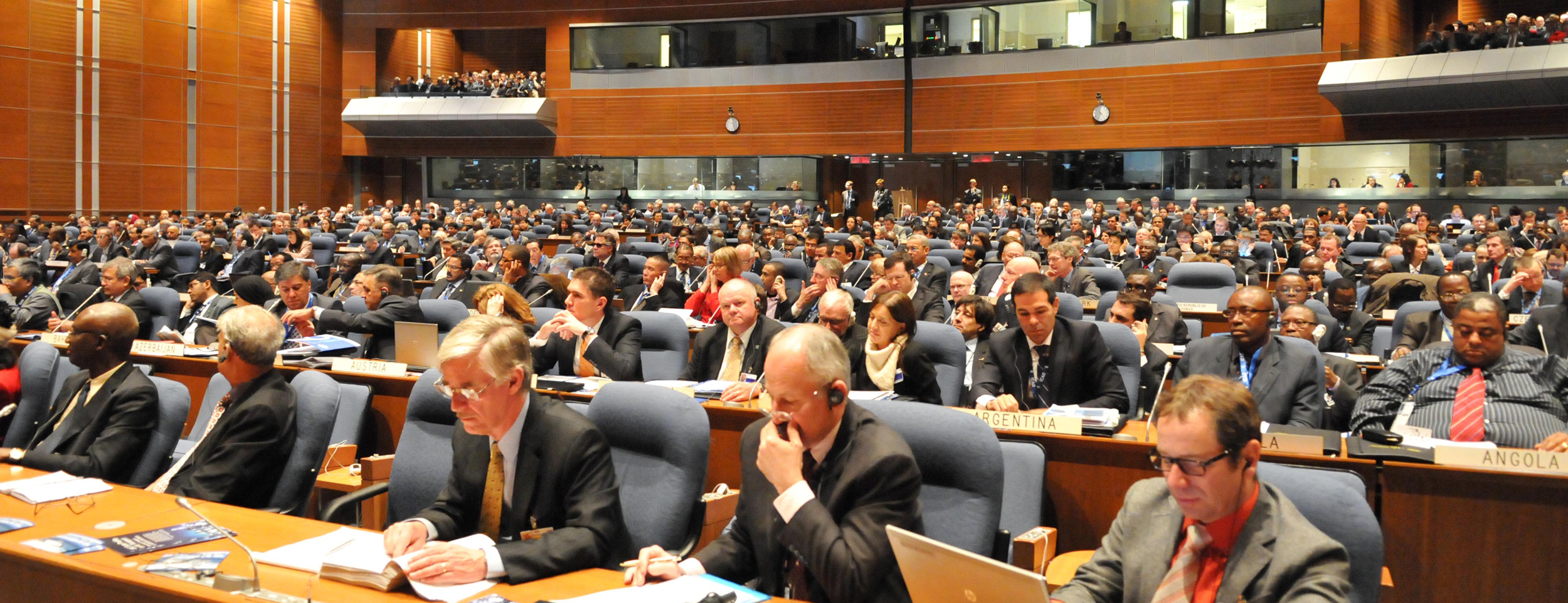
MONTRÉAL, 28 March 2013 – World States and aviation industry groups wound up high-level talks at the International Civil Aviation Organization (ICAO) last week, agreeing to key economic regulatory objectives that will guide their efforts to deliver a more competitive and sustainable international aviation sector over the coming decade.
Increased liberalization of air carrier ownership and control, improved convergence of the myriad consumer protection regimes applicable to passengers and airlines, enhanced air cargo liberalization, as well as renewed focus on minimizing State taxes and charges on air travel and transport were among the key long-term targets agreed to at ICAO’s Sixth Worldwide Air Transport Conference (ATConf/6), held at ICAO Headquarters in Montréal.
“It was critical, in light of the projected growth of our sector and its increasing importance as a fundamental driver of economic development and prosperity worldwide, that ICAO forge ahead on these new regulatory tools at this time,” stressed ICAO Council President, Roberto Kobeh González. “These concrete measures represent significant advances for ICAO, for the international aviation community, and especially for the world's passengers, airlines and airports.”
Participants to the once-a-decade ICAO event agreed to tear down the barriers that characterize today’s excessively restrictive air services agreements. Doing so will permit world airlines to draw on new sources of investment capital and management expertise.
In the area of airline ownership and control, the Conference agreed that a move toward increased multilateralism would deliver more equity and dependability to profit margins across the entire air transport value chain. It also encouraged enhanced cooperation amongst national and regional competition authorities to further support this progress.
A new multilateral agreement agreed to in the air cargo area is similarly expected to drive increased liberalization and boost global trade. Air transport currently moves 35 per cent of annual global cargo by value.
“The transition from a framework of exclusively State-owned airlines and airports to one of increased competition and liberalization has been a positive one in recent decades,” highlighted ICAO Secretary General, Raymond Benjamin, “however, we had reached a point where further action was required. The decisions taken by our Sixth Air Transport Conference demonstrate the global aviation community’s commitment to deliver increased international integration in these areas, but in a manner that respects and ensures a more level playing field, improved price transparency and streamlined consumer protection approaches.”
Over one thousand participants, representing 132 countries, major air transport organizations, international finance and a wide range of other groups participated at the influential ICAO event.
